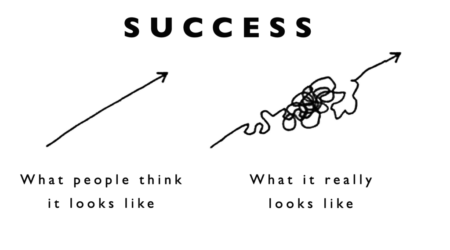Welcoming Sheel Mohnot to the Catalyst Fund Investors Advisory Committee
Catalyst Fund IAC Profile Series #1

We’re pleased to announce that Sheel Mohnot, partner at 500 Startups and angel investor, has joined the Catalyst Fund Investors Advisory Committee (IAC). Sheel completes the committee, bringing an impressive mix of mainstream and impact-oriented fintech experience to our advisor network.
Catalyst Fund accelerates promising startups and spurs innovation in financial inclusion in emerging markets. Our fund has a dual mandate to (1) to help early stage inclusive fintech startups gain traction, offer seed capital and technical assistance, and (2) answer major questions that the industry has about whether fintech startups are leading to systemic change in the financial inclusion ecosystem.
The Investment Advisory Committee (IAC) is comprised of like-minded investors that individually identify, vet, sponsor and mentor an investee startup through the cohort program of the fund. The IAC members provide support to startups through advisory services, mentorship during the cohort, as well as connections to their networks.
Recently, we had the chance to exchange a few questions below with Sheel to get to know each other better and to kick off our first interview of the new IAC profile series.
Sheel, what was your motivation for becoming a member of the Catalyst Fund IAC? What do you think of the CF approach for accelerating early-stage inclusive fintech startups?
I’m very thrilled to be a part of the IAC for Catalyst Fund! I care deeply about financial inclusion. My first foray into fintech was actually on the non-profit side, as one of the early employees at Kiva.org. I spent time in India, living on $2/day to learn what it was like to be one of the borrowers that we were serving. To serve one borrower, I had to take a bus, then ride on the back of a motorcycle, taking hours.
Today, we’re close to the point where everything can be done on the phone. There are 2.5 billion people in the world with smartphones. In 5 years, that number will be 5 billion, and the 2.5 billion people getting access to smartphones are largely unbanked today — that is a massive opportunity.
When I first heard about Catalyst Fund, I immediately thought it was a great idea that was filling a need. Being an entrepreneur in this sector is hard, and Catalyst Fund helps solve two needs, capital and mentorship/expertise. I always think it’s important to get an outside view on ideas, and Catalyst Fund helps startups get that outside view. Aside from grant making & advisory services, I’m excited about the fact that Catalyst Fund has a commitment to sharing lessons learned from the program to the outside world. Likewise, my fund, 500 FinTech, is not strictly focused on social impact, but we do care about financial inclusion. In fact, our tagline is “Financial Services for the rest of us.” We like to say that we invest in companies serving anyone but old white men :).
How is fintech innovation different or similar when it targets rich world, middle classes versus emerging market, underserved consumers
I think fintech innovation is different for underserved consumers largely in the same way that it is for other companies: you scale by serving more people rather than selling more to the same person. The Lifetime Value (LTV) of a customer in emerging economies is much lower than in the developed world, so your cost of acquisition must similarly be cheap for the business to work. I’m reminded of Airtel, they managed to win the rural customer and become the 3rd largest mobile carrier in the world while spending less than their competition by focusing on being a “minutes factory,” making sure they were making money on every minute. Their competitors were busy focusing on ARPU (Average Revenue Per User), while Airtel just wanted to be profitable on every minute and not caring how much their users were spending with them. Even now, Airtel users ARPU is just $3/month, lower than any other carrier. Years ago, I wrote a case study on Airtel’s growth strategies with CK Prahalad that delves deeper.
Another difference working in the emerging market is regulation. My friend Matt Flannery runs a company called Branch. They give out loans via the mobile phone in Kenya. He told me something pretty interesting — in Kenya, he wishes there were MORE regulation! It was the first time I had ever heard this remark from a company, but in his case there are lots of unscrupulous companies ripping off customers, so Matt wishes there were more regulations in the country to limit the behavior.
What do you think it will take for mainstream Silicon Valley investors to invest in fintech companies in emerging markets? What do investors need to see in order for there to be an uptake in investments targeting underserved consumers in regions like Africa, Latin America and Southeast Asia?
Mainstream investors like me need to see a full ecosystem. The main thing missing in these regions, is follow-on funding and potential acquirers. Southeast Asia in particular has developed quite nicely with there being many more smart investors willing to put in money for Series A, B, C. This stems from an already developed ecosystem in China and India, with investors moving capital to the region. Africa and Latin America aren’t quite there yet. Many of the investors have a private equity mindset, where they want to own more than 50% of the company. This often leads to bad outcomes for both investors and entrepreneurs. This is changing, slowly but surely. I think you won’t see money flocking to the region until we have a few huge success stories proving that it can be done.
Listen to the most recent Pitch podcast below.
Sheel created the Pitch in 2015
500 Startups Demo Day-The FinTech Accelerator (Part 2)
The fintech industry is growing and changing quickly. What shifts have you seen in how investors assess entrepreneurs in this space? Please explain.
I think we assess entrepreneurs the same way we always have. There are several questions that I think about:
– Can they articulate their ideas to me well? I need to be able to understand what they do easily.
– Are they adaptable? Can you figure a way out? Startups are hard and there are many times when things won’t go your way.
– Do they think big? I’m not interested in investing in an idea that doesn’t have the ability to scale to reach a massive audience.
– Do they have experience in the field? This isn’t a must-have but specifically in fintech, it is more important than some other fields, as there are lots of pitfalls.
– Do I believe that this person can run the company 5 years from now? I’m looking for someone who can lead 100+ people. There isn’t a way to quantify it other than gut feel.

About Sheel
Sheel is a Partner at 500 Startups, running the 500 Startups Fintech Fund, “Financial services for the rest of us” and San Francisco-based fintech accelerator. His own startup experience includes 2 successful fintech exits — a payments company and a high-stakes auction company. He also created and hosts the startup podcast called The Pitch. He formerly worked as a financial services consultant at BCG and started his fintech career at the non-profit P2P lender Kiva. Sheel holds an MBA from the University of Michigan and a BS from Carnegie Mellon.
Many thanks to Sheel for his responses and involvement in Catalyst Fund!


